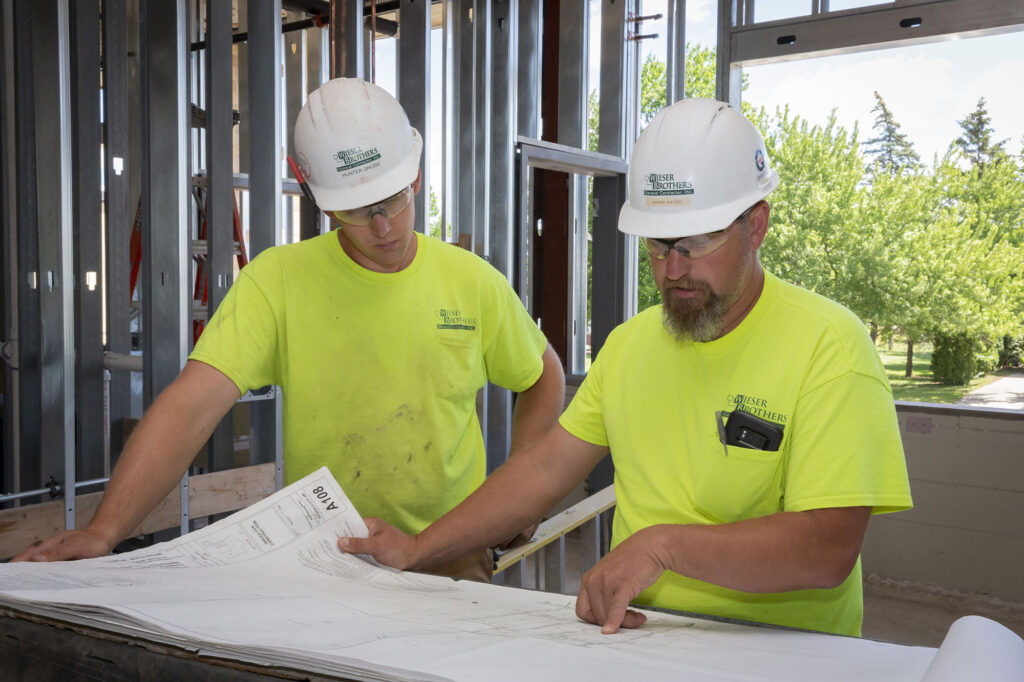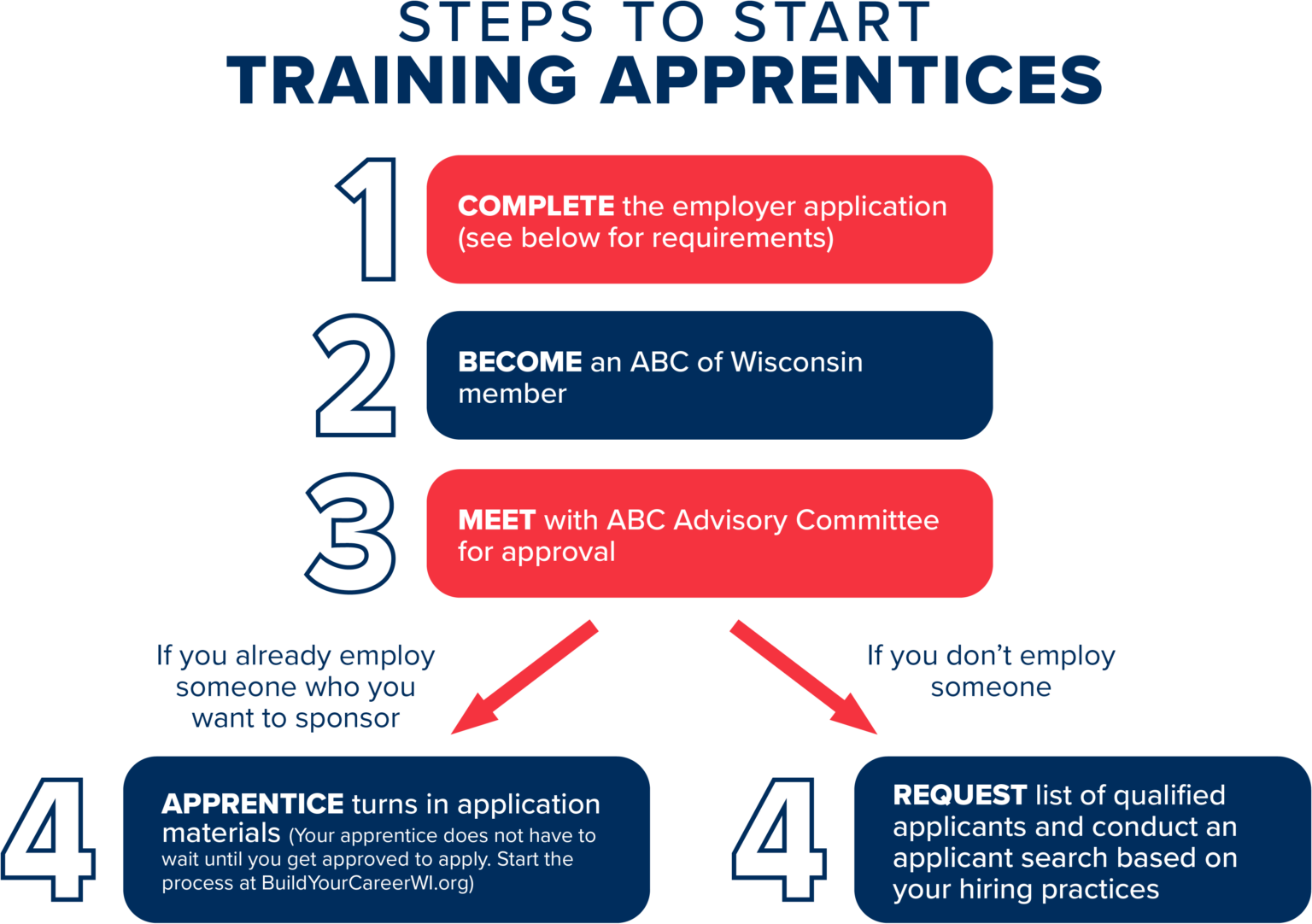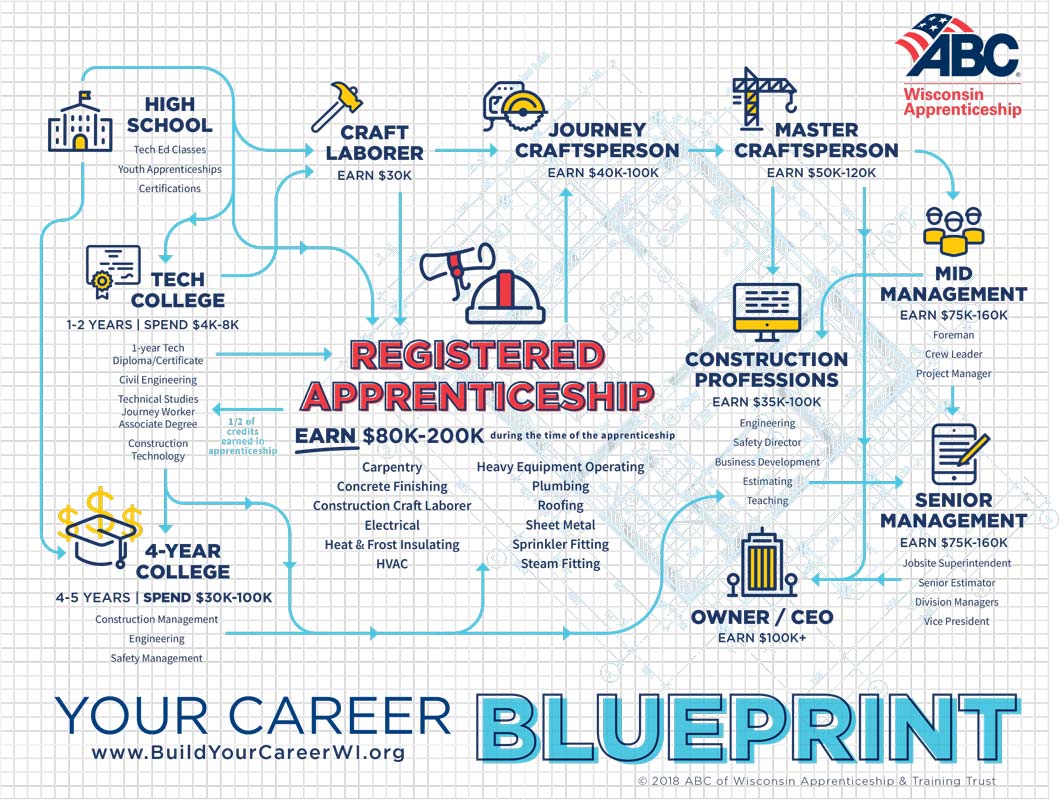ABC of WI requires that every sponsoring employer comply with all applicable local, state, and federal laws, as well as apprenticeship and licensing requirements.
The recruitment, selection, employment, and training of apprentices during the apprenticeship shall be without discrimination because of race, color, religion, national origin, sex, age, cred, handicap, marital status, ancestry, sexual orientation, arrest record, conviction record, or membership in the military forces of the United States, or this state.
The sponsor will take affirmative action to provide equal employment opportunity in apprenticeship and will operate the apprenticeship program and required under title 290 of the Code of Federal Regulations, Part 30 and the Equal Opportunity Regulations of the State of Wisconsin.
Trainers must:
- Be financially reliable and have at least one year in business as an employer in the trade for they wish to train.
- Be able to furnish the equivalent diversified training and work experiences required of the apprenticeship, to result in normal advancement for the apprentice.
- Work at the trade full-time or employ full-time skilled workers, to ensure safe and quality training always.
- Hold credentials for the trade(s) in which they train apprentices as required by state and local laws.
- Be available to meet with the apprenticeship committee at designated intervals to keep it informed as to the apprentice’s progress, conduct, schooling, etc. You may also be required to provide information in writing.
- Have formal written Safety and Hazardous Communication (HazCom) programs as required by OSHA. The employer is responsible to train apprentices in accordance with OSHA standards as described in Public Law 91-596 dated December 29, 1970.
- Allow apprentices to attend all paid related instruction. Work is not an excuse for missing class.
- Pay the apprentice at least the minimum progressive skilled wage rate set by the DWD Bureau of Apprenticeship Standards.
- Pay the apprentice while attending school at the same rate for working on the job.
- For those trades that require licenses, trainers must ensure apprentices have valid licenses at all times.










